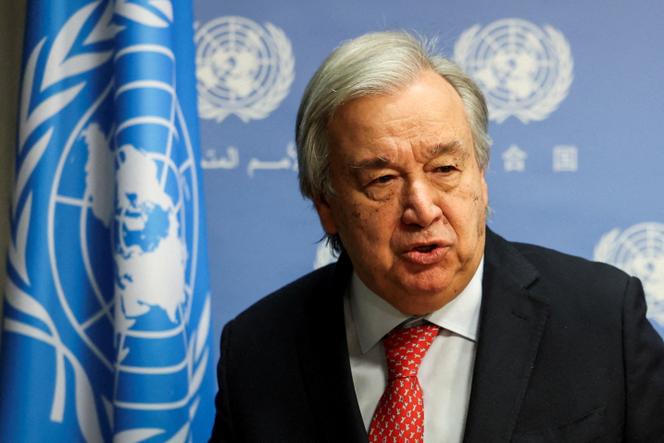


With southern Gaza now undergoing strikes by the Israeli army similar to those targeting the northern part of the enclave, UN Secretary-General Antonio Guterres decided to invoke Article 99 of the organization's charter in a letter to the Security Council on Wednesday, December 6. It was the first time it had been used in 52 years. The procedure, unused since 1971 and the crisis in Pakistan, enables Guterres to "bring to the attention of the Security Council a matter which, in my opinion, may aggravate existing threats to the maintenance of international peace and security."
He hoped that his call for a humanitarian ceasefire will be heeded, "more than eight weeks of hostilities in Gaza and Israel have created appalling human suffering, physical destruction and collective trauma across Israel and the Occupied Palestinian Territory." He also warned of a "complete breakdown soon due to the desperate conditions" in Gaza. After several failures, the Security Council on November 15 only managed to agree on "urgent and extended humanitarian pauses."
Over the past two months, the UN chief has repeatedly condemned the terrorist acts of Hamas on October 7, the hostage-taking and the sexual violence against Israeli women. He has called for an end to the "senseless" cycle of violence between Israel and Gaza, called for "humanitarian pauses" and denounced Hamas's use of civilians as human shields. Faced with the massive destruction of Palestinian civilian infrastructure and the "catastrophic humanitarian situation," Guterres demanded a ceasefire.
"Within the constitutional context of the United Nations, [invoking Article 99] is a very dramatic move," explained its spokesperson, Stéphane Dujarric, even if, outside the organization, it may appear to be nothing more than yet another attempt to influence the ongoing conflict. In 1961, Dag Hammarskjöld, who headed the UN from 1953 to 1961, pointed out that "[it] is Article 99 more than any other which was considered by the drafters of the Charter to have transformed the secretary-general from a purely administrative official to one with an explicit political responsibility."
After two months of conflict, the deaths of over 16,000 people, including 130 UN employees, and the realization that it is virtually no longer able to meet its humanitarian obligations in Gaza, the UN "hopes that members of the Security Council will be moved by it and we hope the international community will be moved by it to push and put in place a humanitarian ceasefire" continued Dujarric.
You have 60% of this article left to read. The rest is for subscribers only.
